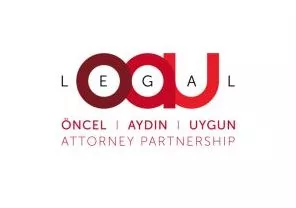Under the Turkish Merger Control Regime, certain types of transactions that exceed the thresholds may be subject to a mandatory notification to the Turkish Competition Authority in the event they result in change of control. This guide is prepared to give you a general idea of whether your transaction should be notified to the Turkish Competition Authority.
Step 1: Identify the type of your transaction:
Under the Turkish Merger Control Regime, (i) mergers, (ii) acquisitions and (iii) joint ventures are the three types of transactions that may be caught for a mandatory notification to the Turkish Competition Authority.
- Mergers: A merger of two or more undertakings is considered a merger transaction.
- Acquisitions: Acquisition of control over entities or assets is considered an acquisition transaction.
- Joint Ventures: A joint venture that meets all functions of an independent economic entity is considered a joint venture.
Step 2: Is there a change of control?
Rights, agreements or other means that confer the possibility of exercising de facto or de jure decisive influence results in change of control. Note that acquisition of minority shares or the grant of certain veto rights may also result in change of control under this definition. If the transaction does not result in a change of control in this regard, notification is not required.
Step 3: Are the thresholds exceeded?
There are two types of thresholds under the Turkish Merger Control Regime: (i) local and (ii) worldwide.
(i) Local Thresholds:
In any type of transaction, whether merger, acquisition or the formation of a joint venture, ask the following questions:
- Did the parties' aggregate turnovers generated in Turkey exceed TL 100 million (approximately USD 27.3 million / EUR 24.2 million) in the preceding year?
- Did at least two of the parties generate over TL 30 million (approximately USD 8.2 million / EUR 7.2 million) turnover in Turkey in the preceding year separately?
If you answered yes to both of these questions, your transaction is most likely subject to a mandatory merger control notification in Turkey.
(ii) Worldwide Thresholds:
This is where the type of the transaction matters.
For MERGERS ask the following two questions:
- Did any of the parties generate over TL 30 million (approximately USD 8.2 million / EUR 7.2 million) turnover in Turkey in the preceding year?
- Did any of the other parties generate over TL 500 million (approximately USD 136.9 million / EUR 121.3 million) turnover worldwide in the preceding year?
Again, if you answered yes to both of these questions, your merger transaction is most likely subject to a mandatory merger control notification in Turkey.
For ACQUISITIONS ask the following two questions:
- Did the target generate over TL 30 million (approximately USD 8.2 million / EUR 7.2 million) turnover in Turkey in the preceding year?
- Did any of one of the buyers generate over TL 500 million (approximately USD 136.9 million / EUR 121.3 million) turnover worldwide in the preceding year?
Once more, if you answered yes to both of these questions, your acquisition transaction is most likely subject to a mandatory merger control notification in Turkey.
Frequently Asked Questions:
Here are several helpful remarks that answer some of the most frequently asked questions by our clients:
- Overlapping activities are not required.
- There are no de minimis exemptions.
- Turnover generated from mere sales made into Turkey (i.e. no physical presence) may trigger the thresholds.
- Foreign-to-foreign transactions are also caught if the thresholds are exceeded.
- Approval from the Turkish Competition Board is required before closing.
The content of this article is intended to provide a general guide to the subject matter. Specialist advice should be sought about your specific circumstances.


